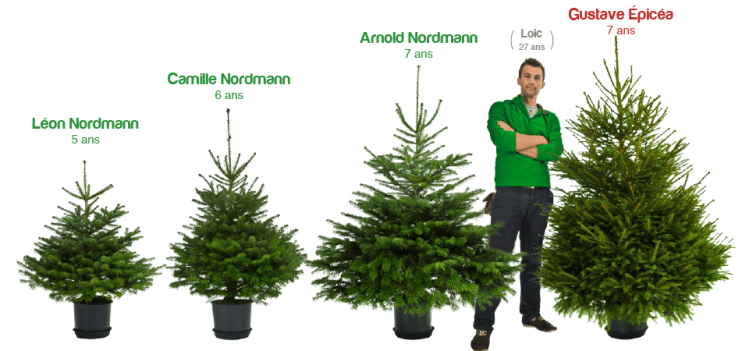Let us now discuss one of the more uncomfortable truths about this holiday season.
Most of you who celebrate Christmas will soon make your yearly purchase of a Christmas tree. According to the National Christmas Tree Association (which is a real thing!), people in the U.S. buy between 25 million and 35 million each year. In Europe, the number is estimated to be around 50 million.
And after the holidays, these trees are all likely headed for the same fate. They will be dumped near the street, shedding needles, sad and withered, to await pickup by the local garbage collection service. No matter how organic or environmentally friendly the farm that grew it, no matter how few pesticides or how much love you gave it, there is no ignoring the fact that a lot of energy and water went into growing something that was used a few weeks before being cast aside.
But now, there may be a solution to this annual arboreal apocalypse.
Two Paris companies, Parrot and Treezmas, have joined forces in a new partnership to create a smart Christmas tree that can be used and reused before finally being planted for the rest of its natural life.
Treezmas actually launched its Christmas tree rental service three years, according to one of the cofounders, Loïc Cessot.
The trees are planted in pots and delivered to people’s homes, where they remain in the pots until they are retrieved by Treezmas after the holidays. The cost ranges from €64 to €119 ($80 to $148) depending on the size of the tree.
“You have a clean conscience,” Cessot said. “You have the tree for a little while, and then it eventually goes into the ground.”
It’s a great concept, with one significant flaw: people.
As has been firmly established throughout history, people are lazy, forgetful, ignorant, and (particularly around the holidays), often sloshing around drunk on egg nog. This is bad news for the trees because it means people forget to water them, or monitor the temperature of the room carefully, or check the soil for proper nutrients.
Treezmas tried to address this problem by giving the trees names, personalities, and fake histories, so that people would be more attached to them. For instance, there is Leo:
“Fresh off of his forest in the Morvan, Leo is curious about everything. He loves the city because it is full of surprises. Just open your eyes and take the time to see every corner. Leo loves scavenger hunts. He dreams archaeologist to adventure in distant lands like Egypt, Greece, and Guatemala to try to discover the treasures of these mysterious civilizations.”
Alas, said Cessot, only about 70 percent of the trees were still alive when they retrieved them from clients. Of the ones being planted in the forest, about 60 percent have survived. So, Treezmas turned to Parrot for help.
Parrot is best known for its drones and high-quality headphones. But it also has a project called “Flower Power,” which is a wireless sensor that you stick in the soil to monitor things like the content of the dirt, the fertilizer level, light, temperature, and moisture.
For an extra €49 ($61), Treezmas customers can get the Flower Power sensor, which connects to an app on their smartphone so they can track these elements and adjust them based on the feedback. The special Treezmas app will even include the tree’s personal profile information.
Will it work? Will a data-driven approach help save more trees? Treezmas won’t know for sure until after the holidays, but the company is hopeful the devices will save more trees from the garbage heap.
“We try as much as possible to make it easier for people,” Cessot said. “We think this kind of device could help people take better care of their tree.”
VentureBeat's mission is to be a digital town square for technical decision-makers to gain knowledge about transformative enterprise technology and transact. Learn More


